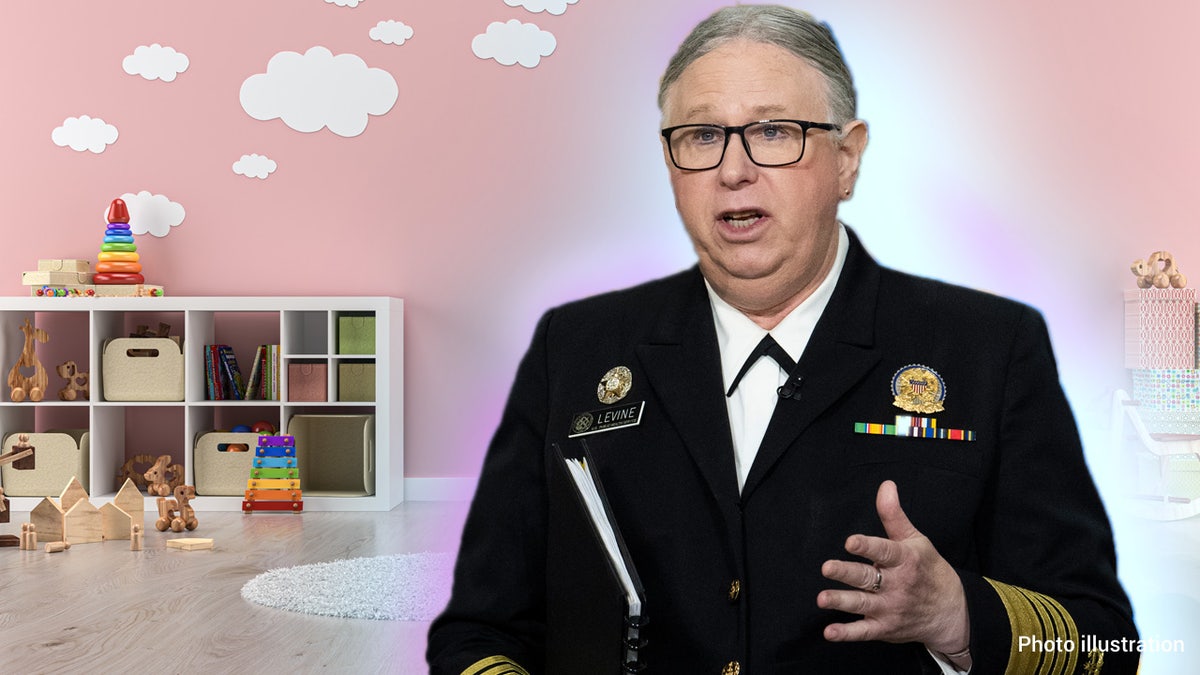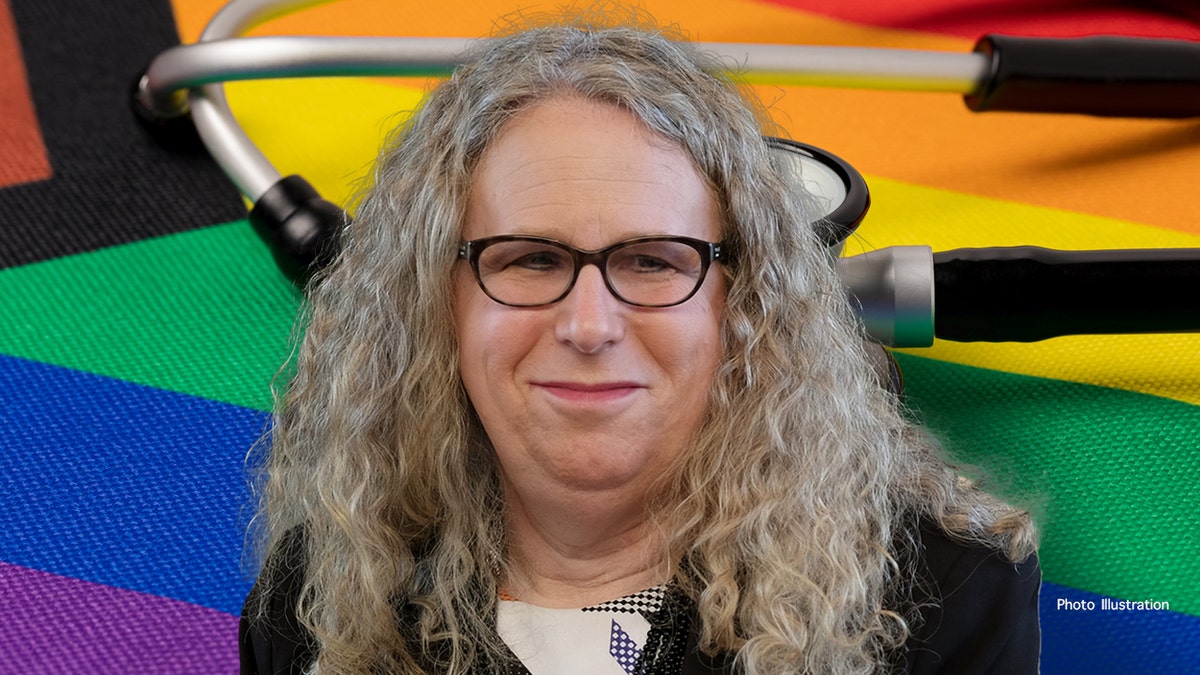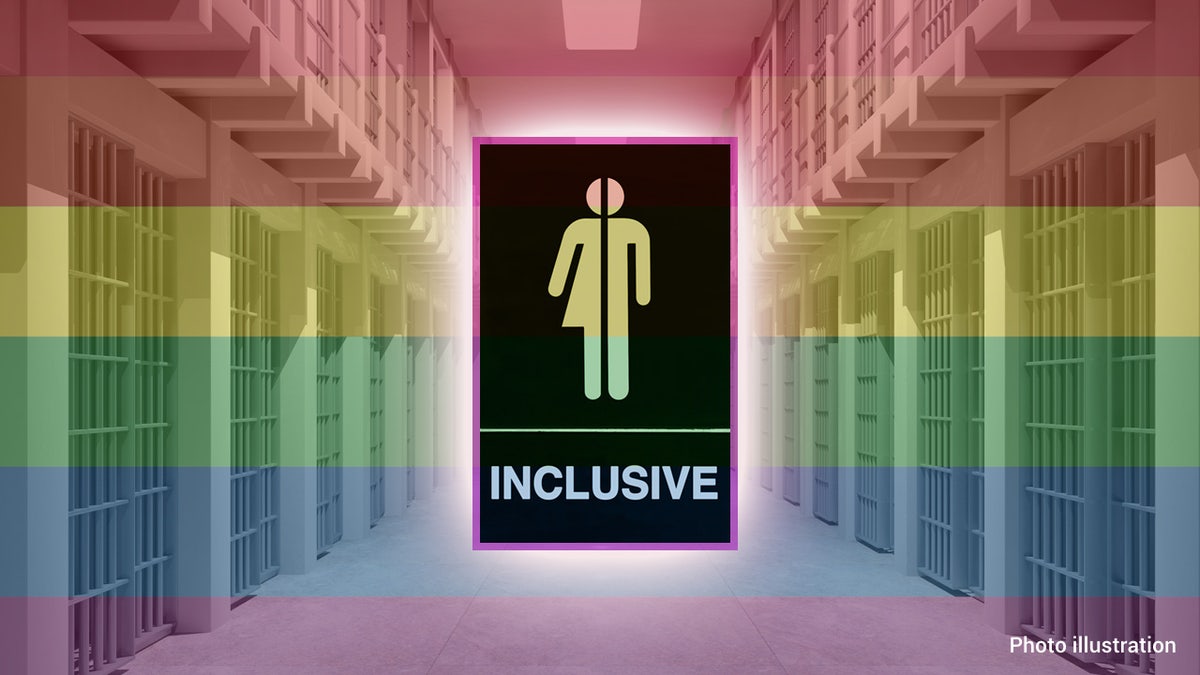Caitlyn Jenner backs New York county’s ban on transgender female athletes
Nassau County Executive Bruce Blakeman joined 'Fox & Friends' to discuss how he garnered Jenner's support for the initiative and how AG Letitia James has taken action to halt the move.
Department of Health and Human Services Assistant Secretary Rachel Levine opened up about questioning gender identity at a young age, saying transgenderism was part of her "earliest" memories from childhood in an interview.
Levine, one of the highest-ranking transgender officials in the government, discussed those memories in an interview with "The Advocate" on Monday.
"You might question many things in your life," Levine said. "You might question your family, you might question your school, might question your job, you might question many different things, but you don’t question your gender. It’s a fixed star in your universe for most people, but there’s a group of people, of which I am proudly one, where that has not been the issue. I’ve always questioned my gender. It never felt right from my earliest memories and so, I think that that’s a common theme for most, if not for many transgender and nonbinary people."
Levine said the feelings are not a "social contagion phenomenon."

Rachel Levine says earliest memories were of transgenderism. (Getty | Fox News Digital)
"This is not a social contagion phenomenon, and we’ve been around forever, hiding in the closet," Levine said. "So, the ability in our society now is not to be in the closet. We need to foster that and to nurture that."
The Biden official also dove into criticism about the views espoused about sex change interventions on children.
"The more I’m attacked, the more it motivates me to work harder and to advocate more," Levine added.

Rachel Levine has been promoting transgender sex changes for minors. (Getty | Fox News Digital)
DOJ SUES UTAH FOR 'DISCRIMINATION BASED ON GENDER DYSPHORIA' OF TRANSGENDER PRISONER
"I am able to compartmentalize any feelings I have and then work them out myself and with my friends and my family," Levine said.
In 2022, the assistant secretary claimed "there is no argument among medical professionals — pediatricians, pediatric endocrinologists, adolescent medicine physicians, adolescent psychiatrists, psychologists, etc. — about the value and the importance of gender-affirming care."
The description with which the Biden official portrayed support of underage sex reassignment was criticized by multiple doctors and therapists.
The following year, the American Academy of Pediatrics launched a review of the evidence for implementing gender reassignment treatments on children.
This followed Swedish doctors at the Karolinska Institute finding that the hormones used on children can have deleterious effects on bone maturation and mineral density. The use of the drugs should be considered "experimental," according to their analysis.
Most recently, England's National Health Service banned transgender hormones for children.

Advocates of transgenderism have argued for biological males to be allowed in women's spaces. (Fox News Digital)
CLICK HERE TO GET THE FOX NEWS APP
"What we call GnRH treatment is chemical castration. And it can affect mental health in an unintended, undesirable way. So it's very important that the patient and the patient's family are informed about this," said Ricard Nergårdh, a Swedish pediatric endocrinologist and researcher involved in transgender medicine.
"I'm very worried about it, and I think I'm not alone in that," he said regarding his concerns about puberty blockers for children.








































